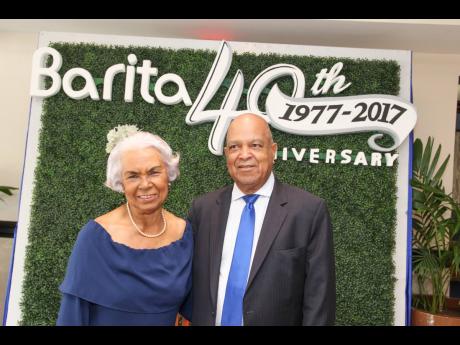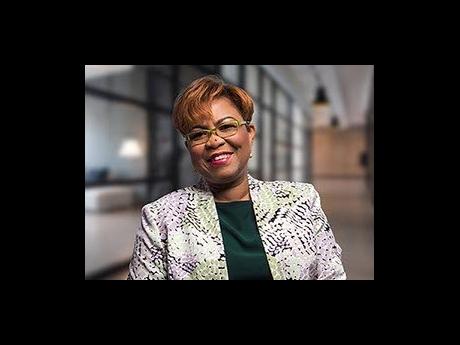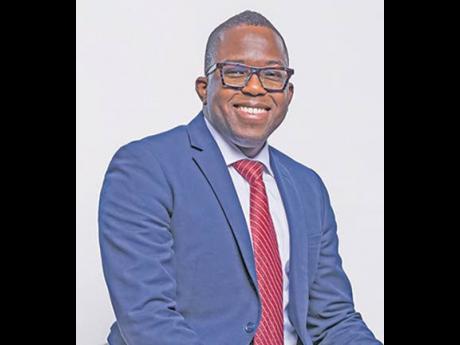Nurse: Hard to miss Humphries-Lewin’s dementia
... claims Barita-Cornerstone execs should have known about businesswoman’s condition
A nurse who led homecare for Rita Humphries-Lewin claims Cornerstone boss Paul Simpson had the opportunity to see her mental deterioration as he was like a “son”, who was left unattended with the 87-year-old during many visits.
The evidence from the registered nurse also brings into question assertions from Humphries-Lewin’s long-time associate Sonia Owens, who has said she did not know that her former boss was diagnosed with dementia when she recommended transactions of over $2 billion in September 2021.
“It was clear to me from the questions asked by Owens and how she related to Humphries-Lewin when she visited the home that she knew that Humphries-Lewin was experiencing challenges with memory, speech, and general understanding of what was taking place around her,” the nurse said in her affidavit filed in court on September 13.
Owens is an executive at Barita, a subsidiary of Cornerstone. She has acknowledged recommending the 2021 deal to Humphries-Lewin after discussions with Cornerstone’s leadership.
Simpson, Cornerstone United Holdings Jamaica, Cornerstone Financial Holdings Limited and Chief Investment Officer Jason Chambers made the case public after filing an application in the Supreme Court in May to have the deals declared legal.
They sought the court’s intervention following accusations by Humphries-Lewin’s niece, Deborah Mordecai Edwards, that the transactions involved “some level of deception, coercion and/or fraud”, that they knew she had dementia, and that her aunt did not get independent legal advice.
Simpson, Chambers and Owens have rejected all the allegations. They say there was no sign that Humphries-Lewin was unwell during the period April 2021 to September 2021 when she negotiated and bought 1.4 million Cornerstone shares and sold 28.2 million shares in Barita worth US$15 million (J$2 billion) to pay for the acquisition.
Humphries-Lewin sold her majority stake in Barita in 2018 in a $3-billion deal, but retained a minority holding.
SERIES OF SYMPTOMS
The nurse said she has been practising since 2004, initially at the University Hospital of the West Indies and later at Kings County Hospital in New York. She also operates her own business.
The Lewins employed her in October 2019 when the businesswoman’s legs were fractured in a motor vehicle crash.
She said she was one of six nurses who worked “round the clock” to support Humphries-Lewin. She left in December 2021.
The nurse said that her duties included administering medication, assisting on doctors’ visits and attending to Humphries-Lewin’s general healthcare needs at home.
She worked on 12-hour shifts that started at 7 a.m. or 7 p.m., four days per week, which she said allowed her to observe Humphries-Lewin’s general demeanour and behaviour at different times of the day.
While familiarising herself with Humphries-Lewin’s medical status, the nurse said she learnt that Humphries-Lewin was on the drugs Aricept, Namenda and Ginkgo Biloba “for the treatment of dementia related to the Alzheimer’s disease”.
Dementia is a general term for the impaired ability to remember, think, or make decisions. It interferes with one’s ability to do everyday activities, according to the United States Centers for Disease Control and Prevention.
The nurse said she was responsible for administering the medication and during the period October 2019 to December 2021, she observed that while Humphries-Lewin’s orthopaedic injuries “were improving, her memory became progressively worse”.
The nurse pointed to a series of symptoms which she said were consistent with the medical diagnosis. Those included “signs of confusion, anxiety and exhaustion”, problems with short- and long-term memory and problems doing her search puzzles.
“There were instances when Humphries-Lewin would be telling a story about things from her past or trying to teach us something, and in the middle of the story, she would begin to speak about something completely different/unrelated,” she said.
The Sunday Gleaner will not disclose some of the very personal experiences the nurse claims she witnessed, which were indicative of Humphries-Lewin’s worsening mental condition.
“It would have been extremely difficult for persons who knew and interacted with Humphries-Lewin in either a public or private setting before December 2019, to have missed her mental deterioration causing memory challenges, confusion, anxiety and her inability to hold a conversation,” she said, noting that Humphries-Lewin “grew reluctant to attend or stay at social events”.
CONTRARY CLAIMS
The nurse’s recollections ran contrary to accounts given by Simpson and Owens, both of whom said they saw no signs of Humphries-Lewin being unwell.
Owens, who said she worked with Humphries-Lewin since 1984, confirmed she visited the Lewins’ St Andrew residence and that she had “many conversations” with Humphries-Lewin, who “did not exhibit or indicate any mental illness or mental incapacity”.
However, the nurse has a different take.
She said Simpson, Owens and other Barita employees visited the house “quite frequently” during the time she worked there.
“Simpson and Owens in particular would speak to Humphries-Lewin on the occasions they visited the house and Owens, in particular, would ask the nurses how Humphries-Lewin was doing, ask about her cognitive functions, behaviour and reaction to treatment. I would always refer her to Lewin (Rita’s husband, Karl),” the nurse said.
Regarding Simpson, she said he visited “numerous” times when she was providing nursing services. She said when Karl was not at home on some occasions, Simpson spoke with Humphries-Lewin alone.
“Simpson would have had the opportunity to see the deterioration in Humphries-Lewin’s mental state over the period that he visited the house and from his interaction with both Mr [Lewin] and Mrs Humphries-Lewin,” the healthcare practitioner said.
The nurse also pointed to a birthday party for Humphries-Lewin during her tenure where “it would have been difficult for guests in attendance to fail to observe the change in Humphries-Lewin”.
Karl, 86, is the head of a court-approved committee managing Humphries-Lewin’s affairs. He has said his wife was not mentally competent to negotiate the transactions at the centre of the dispute.
He said he participated in some of the talks and witnessed some of the documents, but did not say whether he had advised Cornerstone of the 2019 dementia diagnosis.
The committee has asked the court to reverse the deals.
Mordecai Edwards, who is also chairman of BPM Financial Limited, a competitor to Barita, claims that Cornerstone took advantage of Humphries-Lewin because around the same time when it sold the shares to her aunt at US$10.80, it was also selling shares at US$1.40.
But Cornerstone has rejected those claims, arguing that the lower price was made to existing shareholders in a separate and unrelated transaction.
In August, Jamaica’s financial crimes agency, the Financial Investigations Division, said there may be “some merit” to Mordecai Edwards’ claim, but its investigation was “nowhere near the stage of saying that the allegations are valid and whether anyone will be charged criminally”.
The first hearing of the Cornerstone application is set for October 2.
EDITOR’S NOTE: Cornerstone, its senior executives Paul Simpson and Jason Chambers, along with Barita, have filed a lawsuit against The Gleaner alleging defamation associated with the coverage of the matters filed in court.




